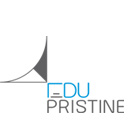Metallgesellschaft (MG)

Über den Vortrag
Der Vortrag „Metallgesellschaft (MG)“ von Edu Pristine ist Bestandteil des Kurses „ARCHIV Case Study: PRM“. Der Vortrag ist dabei in folgende Kapitel unterteilt:
- Metallgesellschaft
- Background
- Backwardation and Contango
- Blame
- Lessons learned
Kundenrezensionen
5,0 von 5 Sternen
| 5 Sterne |
|
5 |
| 4 Sterne |
|
0 |
| 3 Sterne |
|
0 |
| 2 Sterne |
|
0 |
| 1 Stern |
|
0 |
Auszüge aus dem Begleitmaterial
... in the long-term, it created massive short- term funding requirements (cash flows required to meet margin calls). Strategy: MG committed to sell heating oil and gasoline every month at a certain fixed price for 10 years (selling long-term futures with fixed strike price set higher than current market price of oil). This long-term fixed-price contract was hedged using a 'stack strategy' i.e. MG purchased short- term energy futures, that were to be rolled-over. If MP of oil ...
... were eligible for hedge accounting that would have allowed losses on short-term futures to be deferred over a longer period (since these losses were on account of a hedge against long-term futures transactions). However, German accounting standards didn't allow hedge accounting. So losses were to be recognized in full immediately. Full recognition of losses was expected to impact credit rating ...


